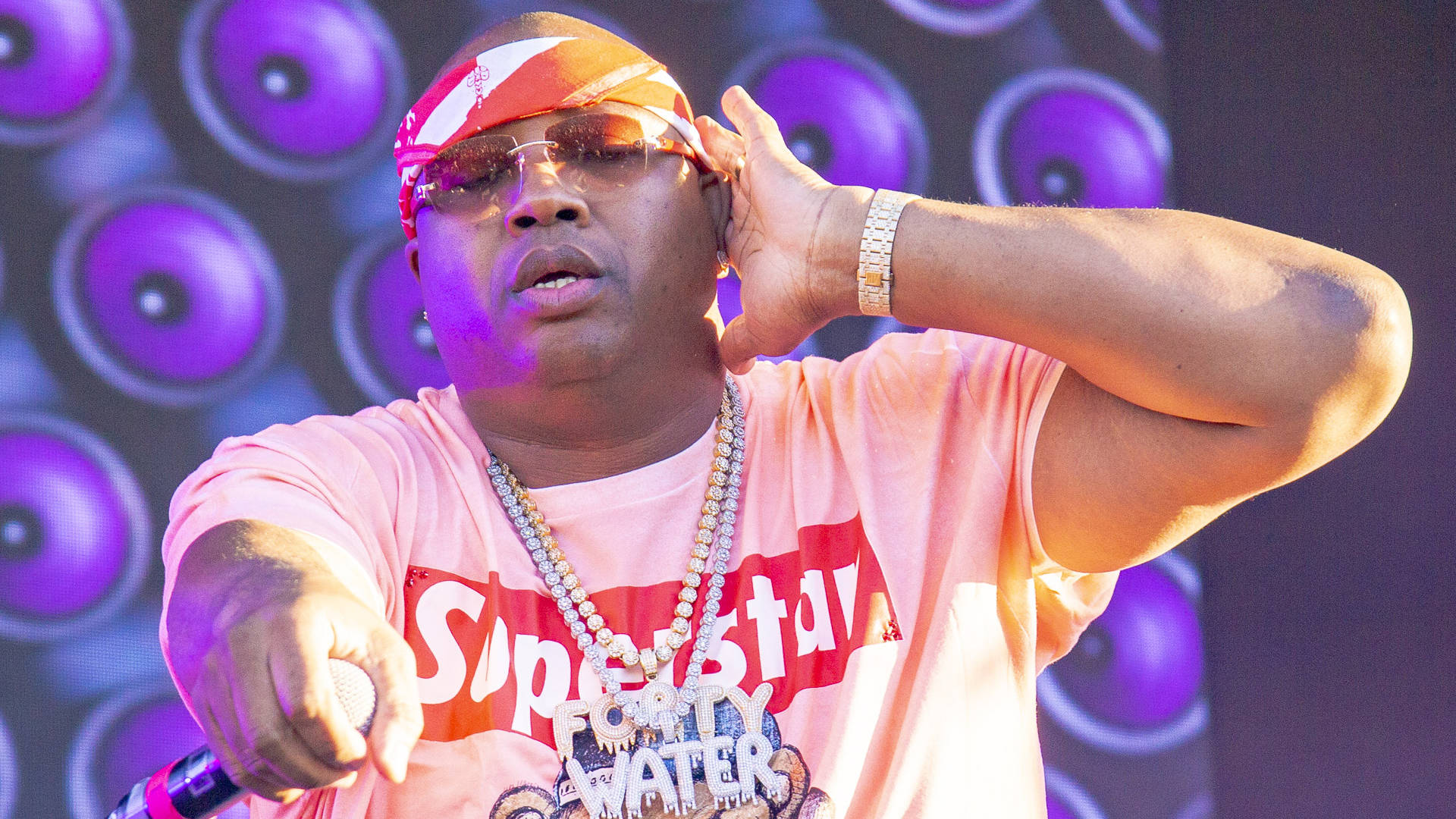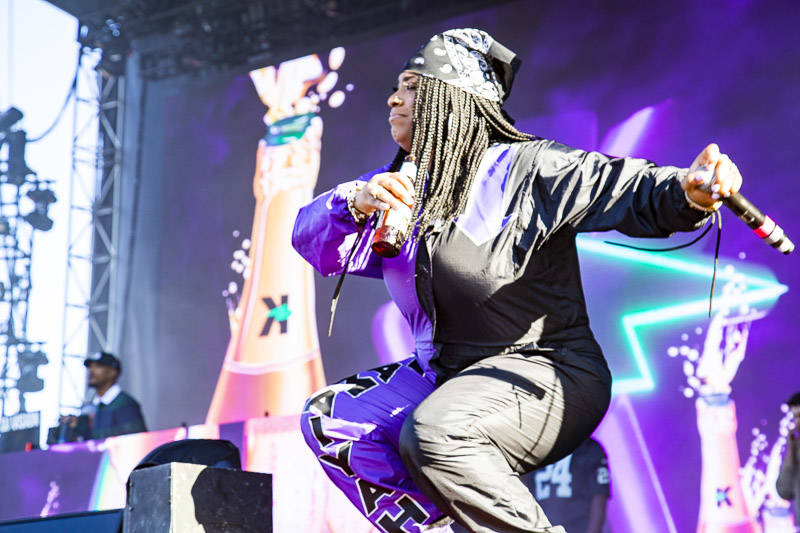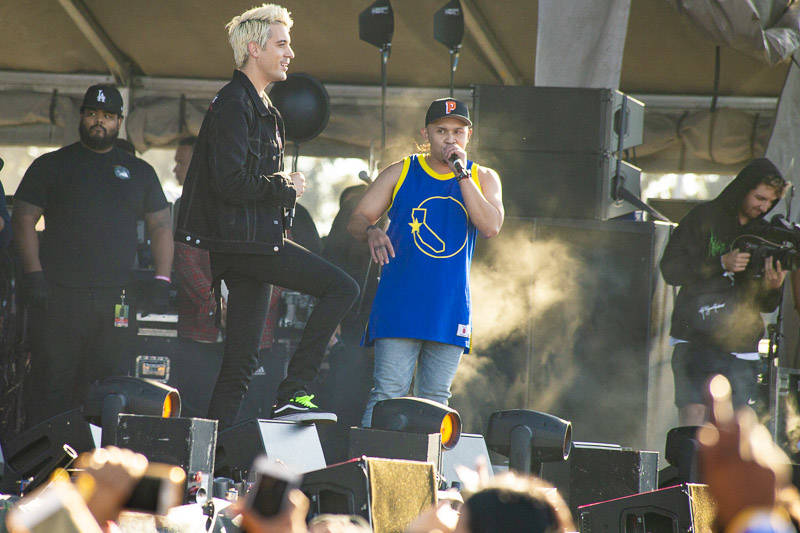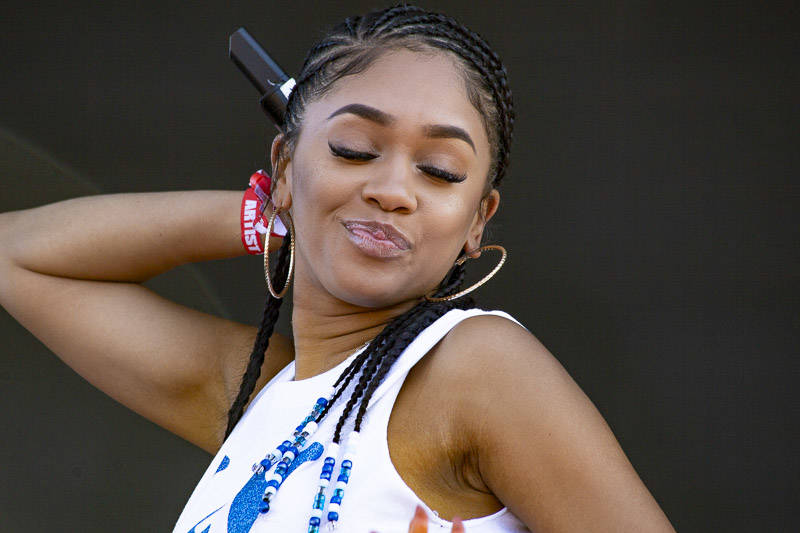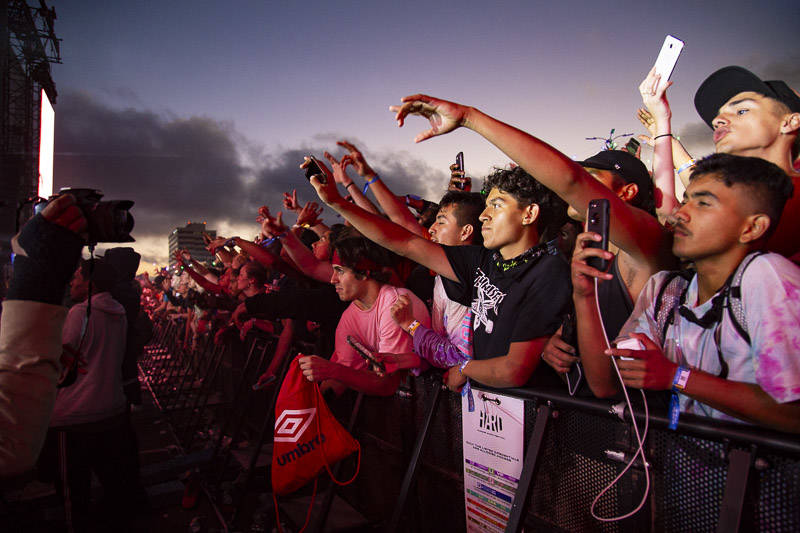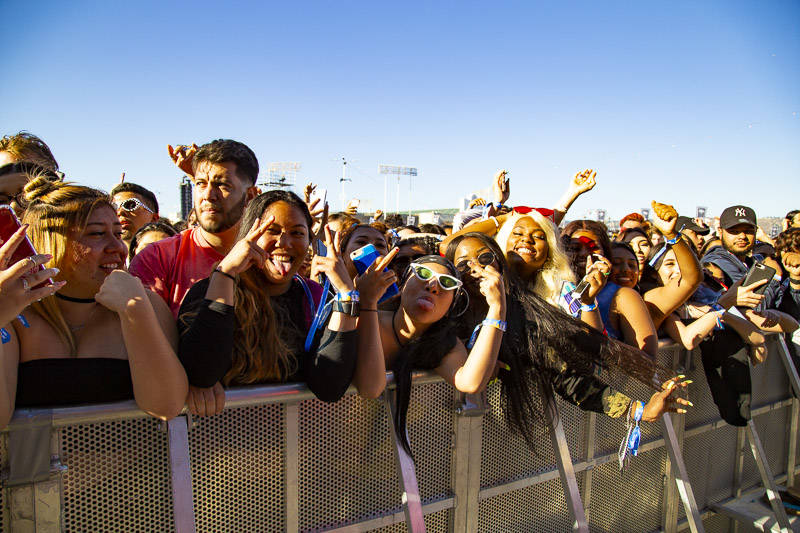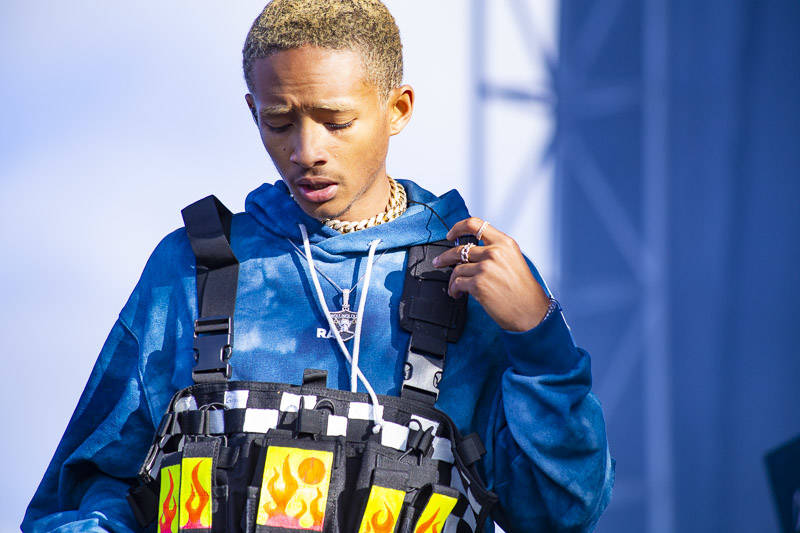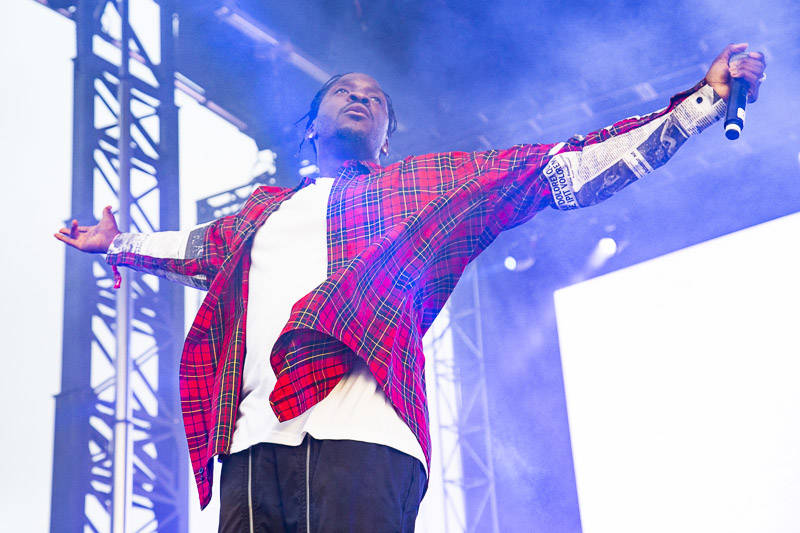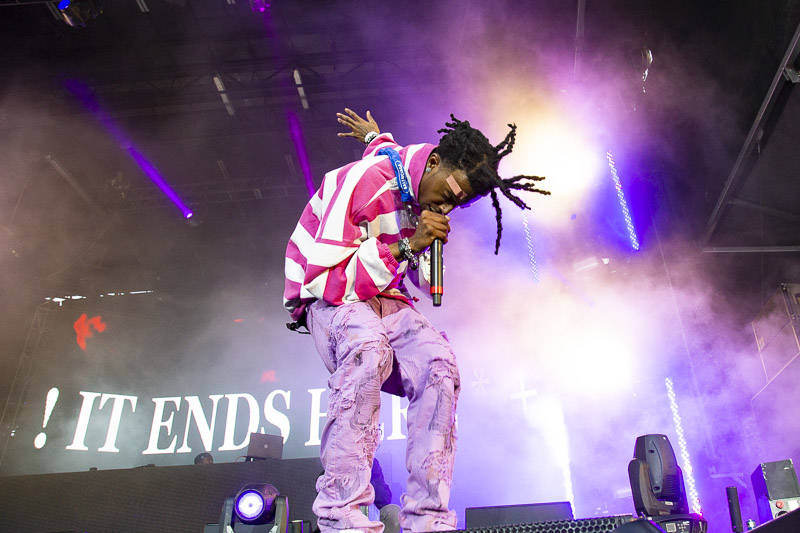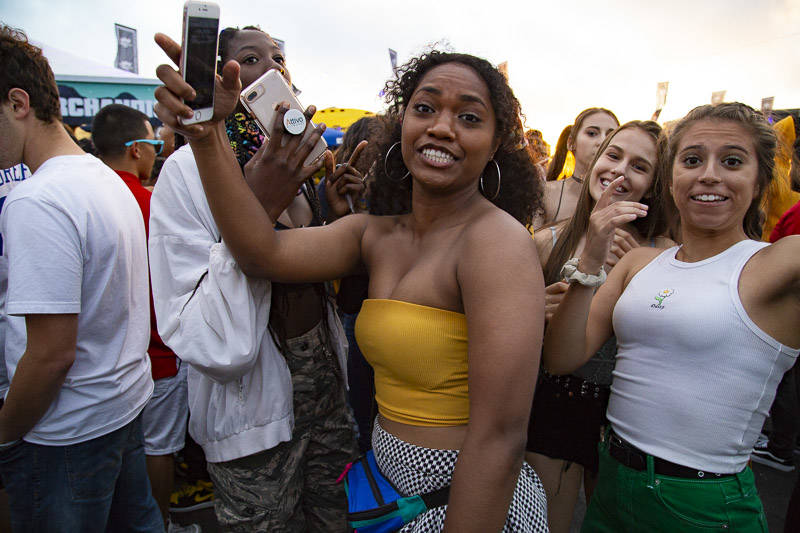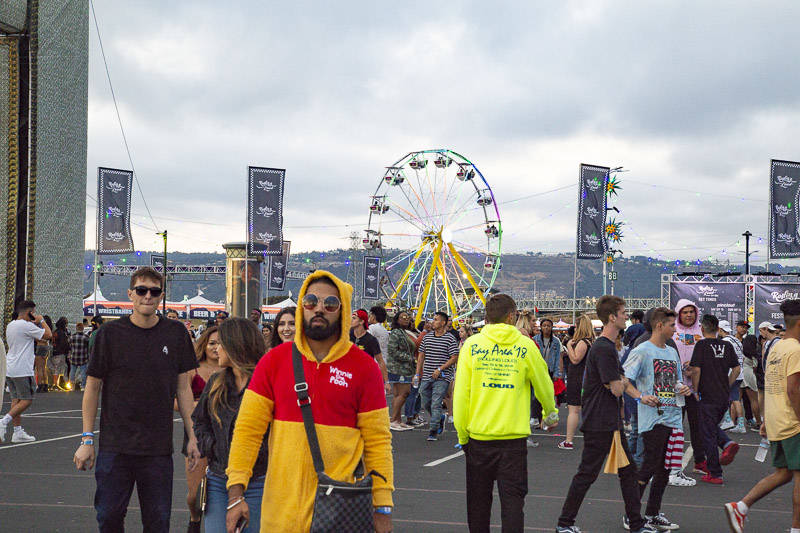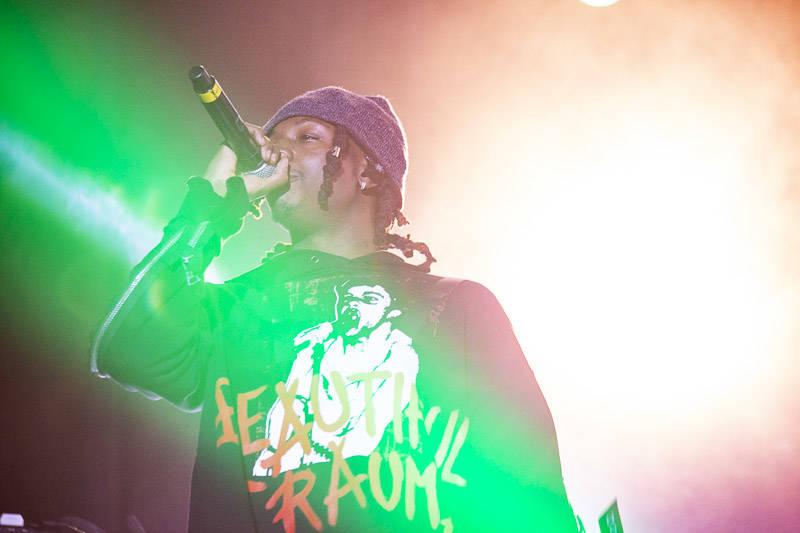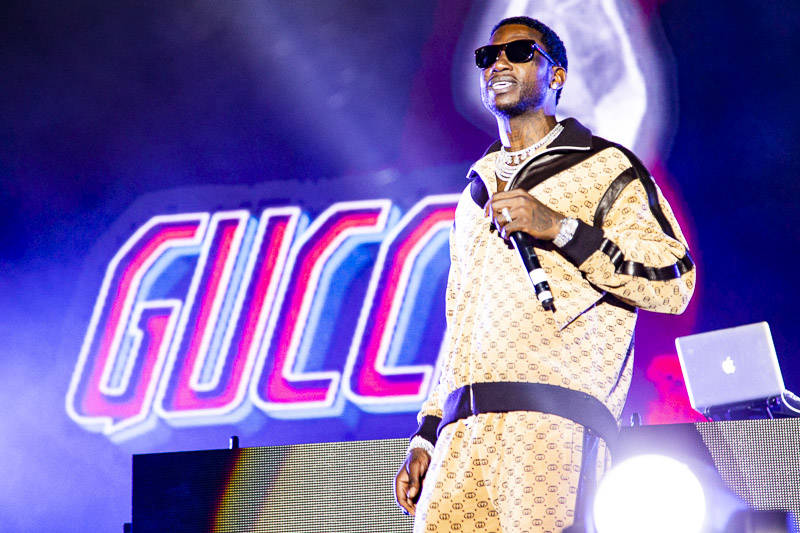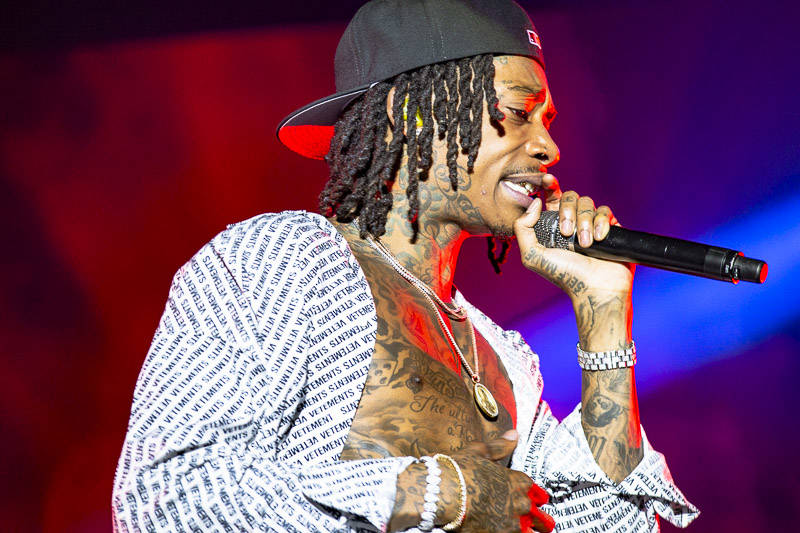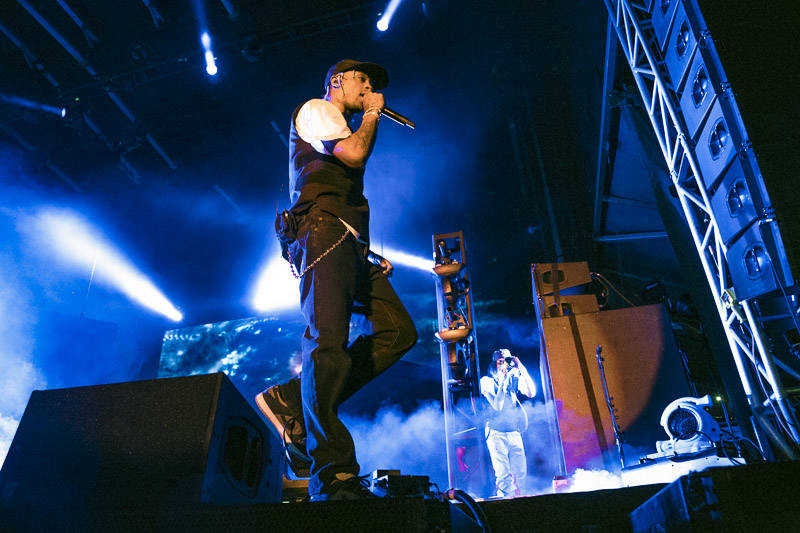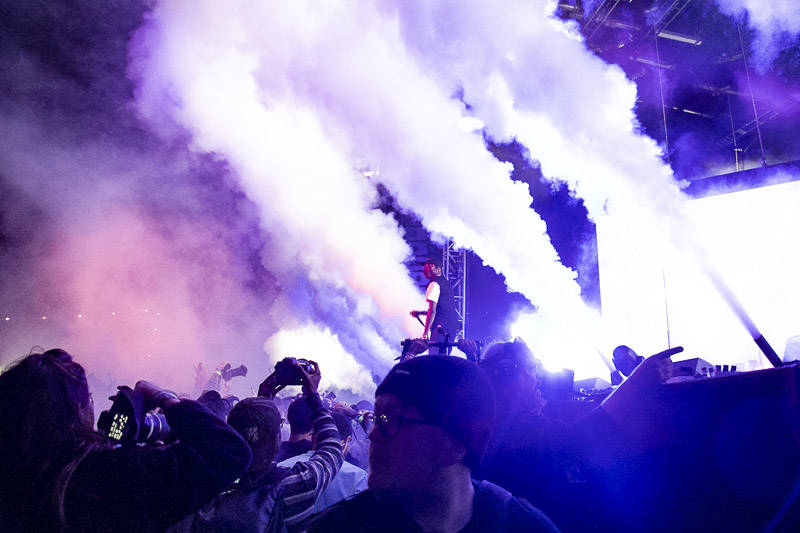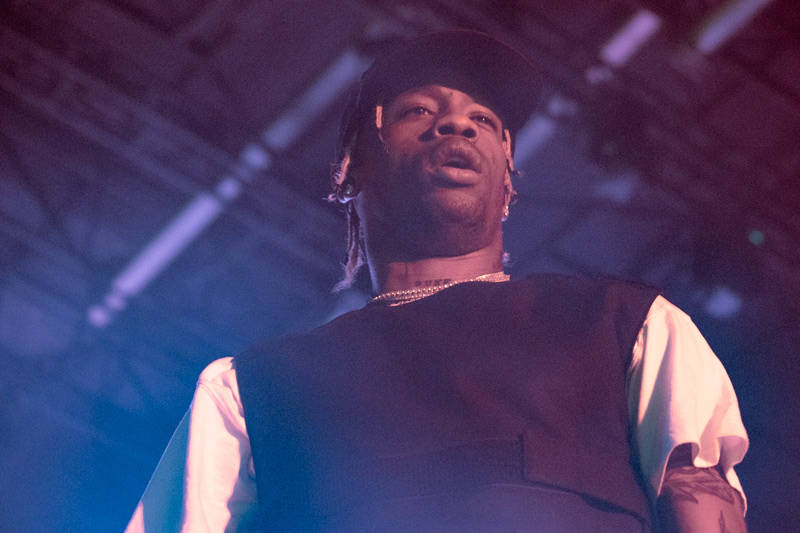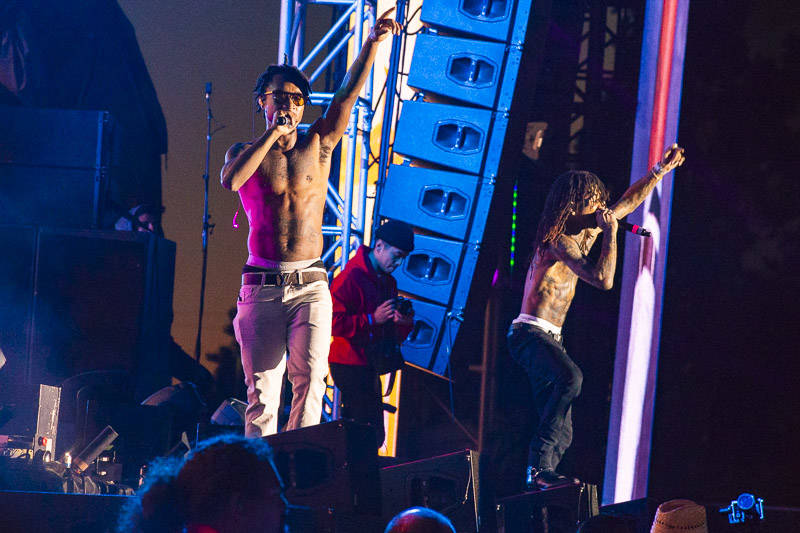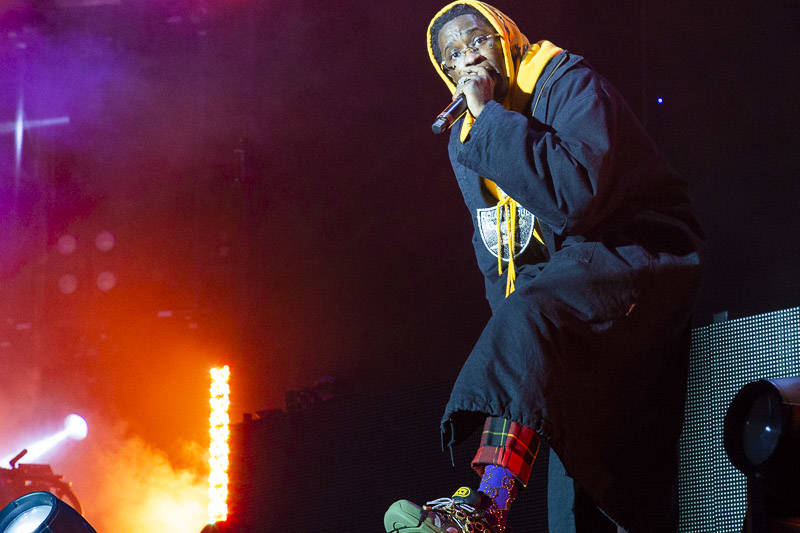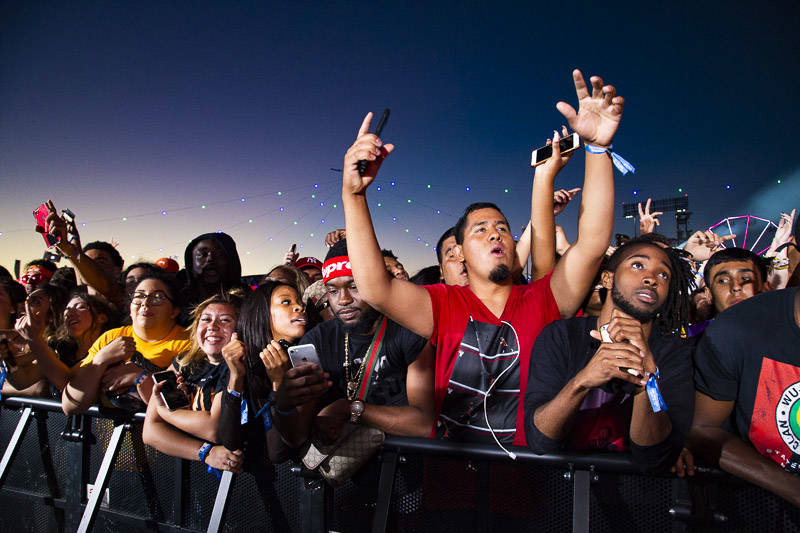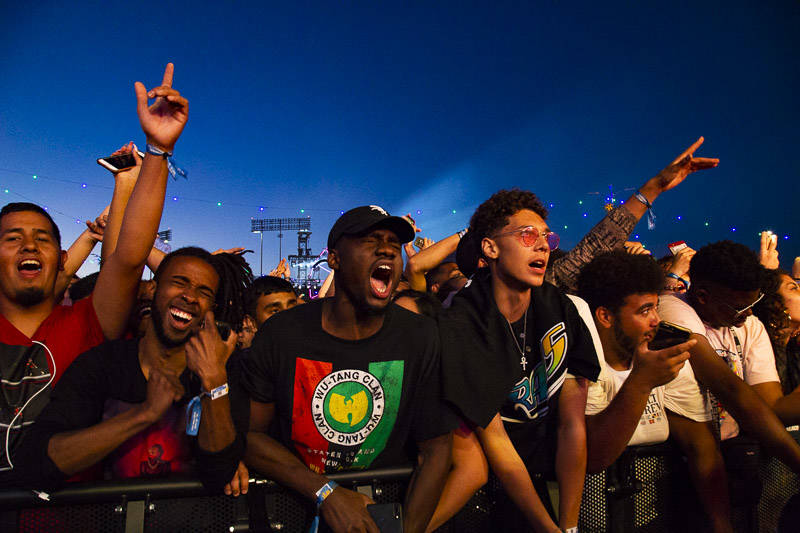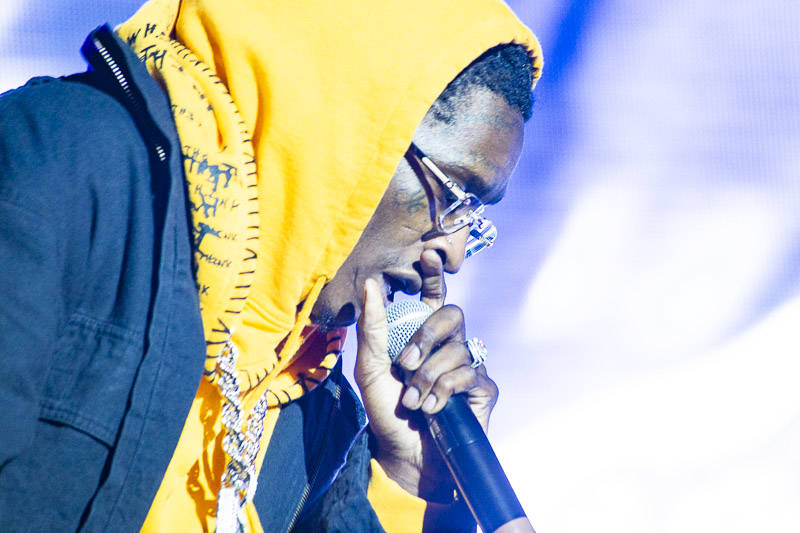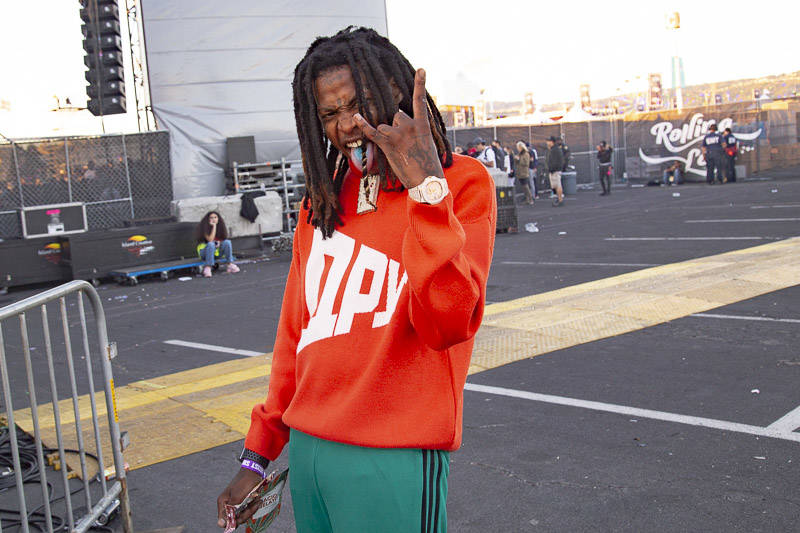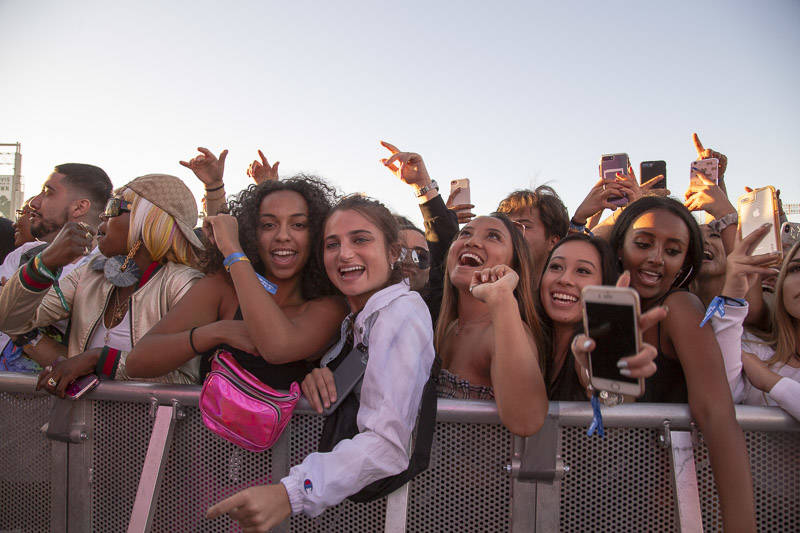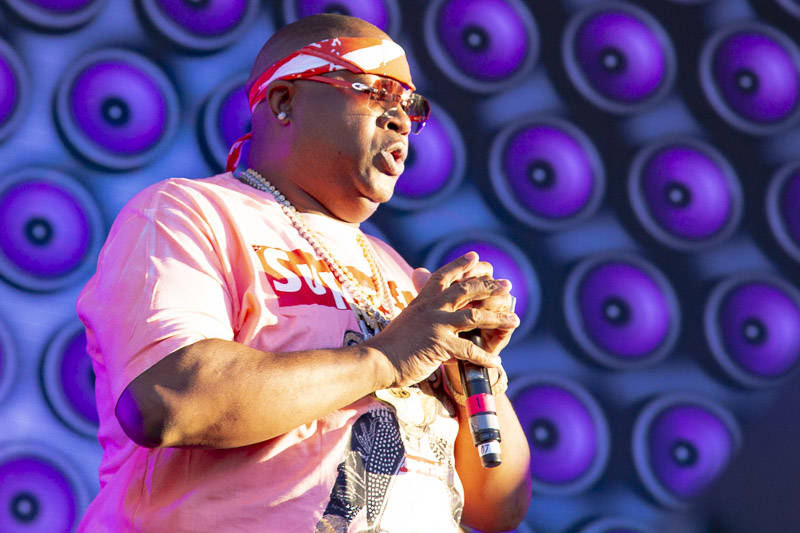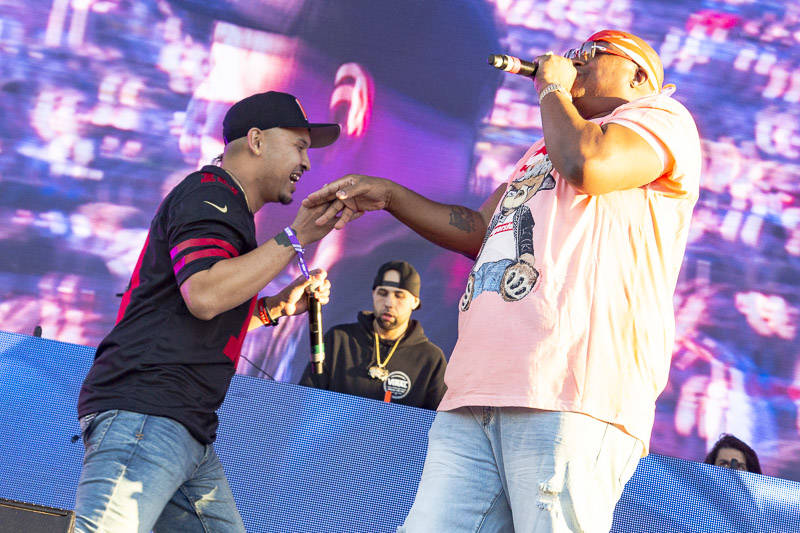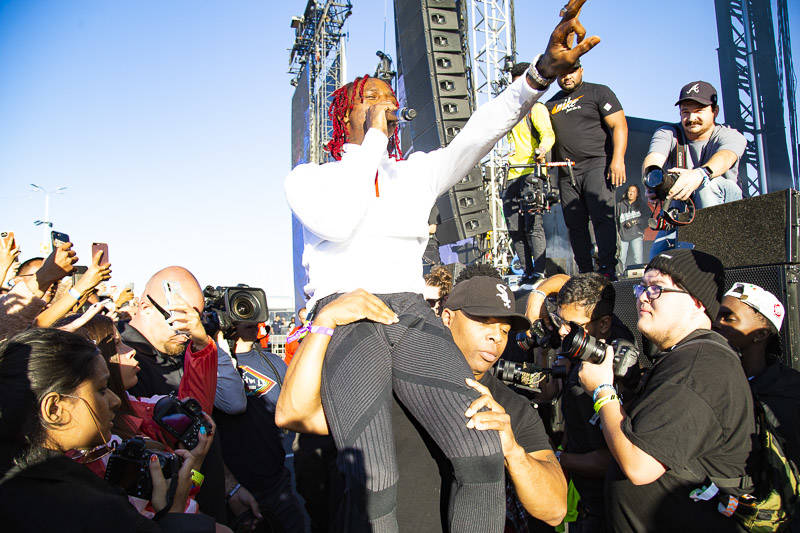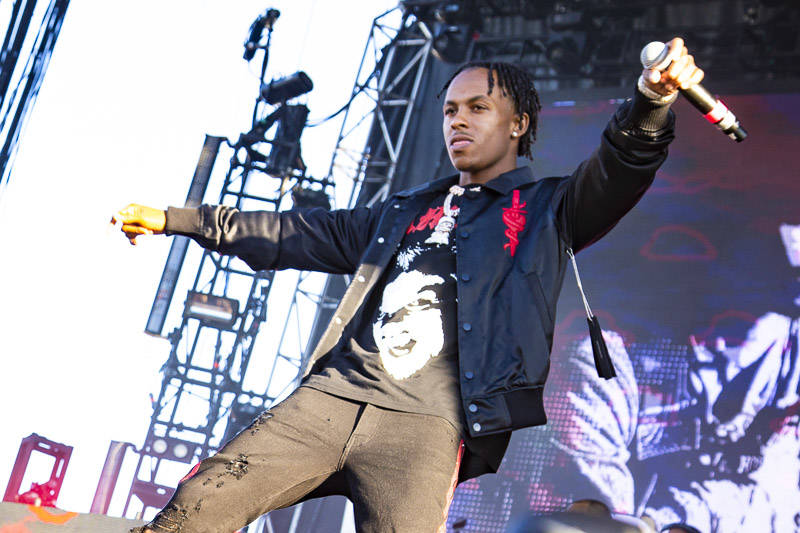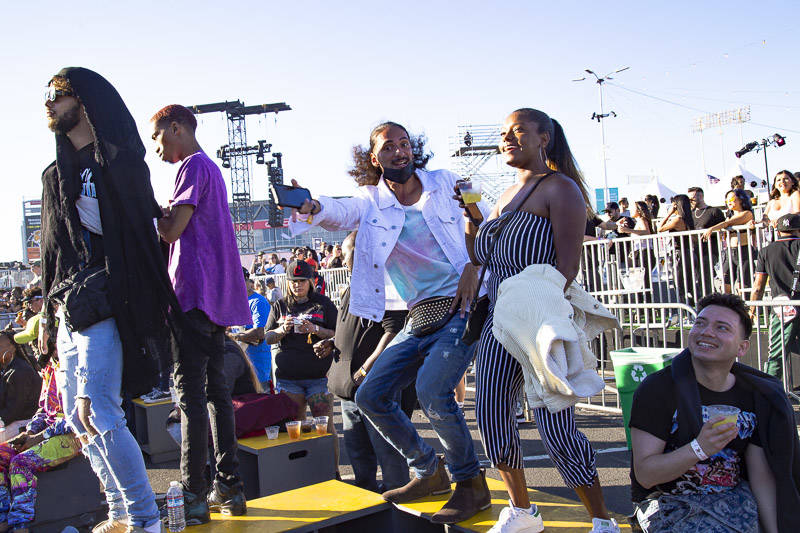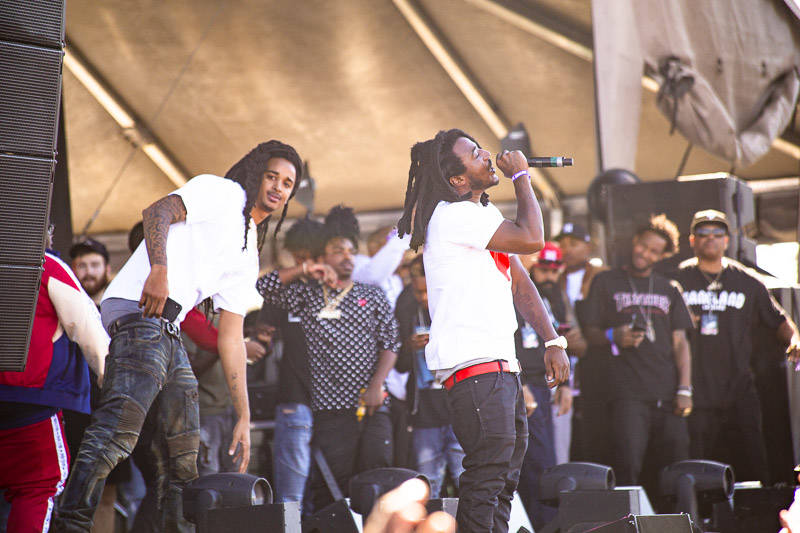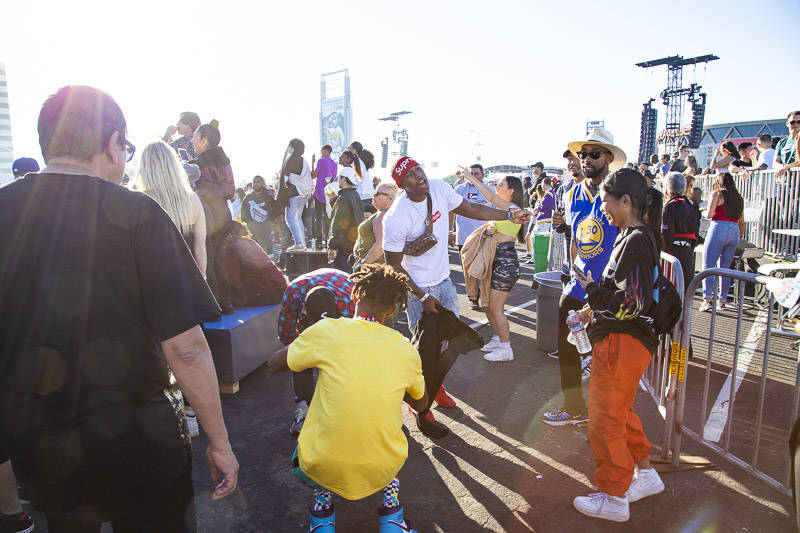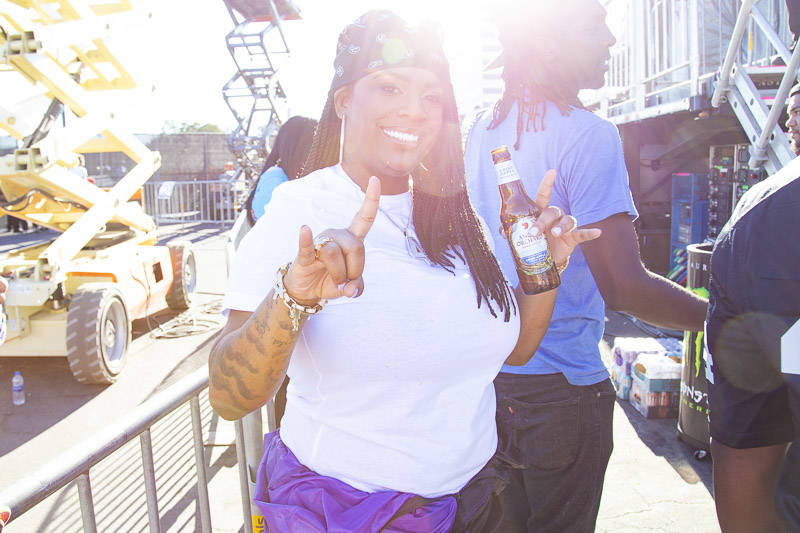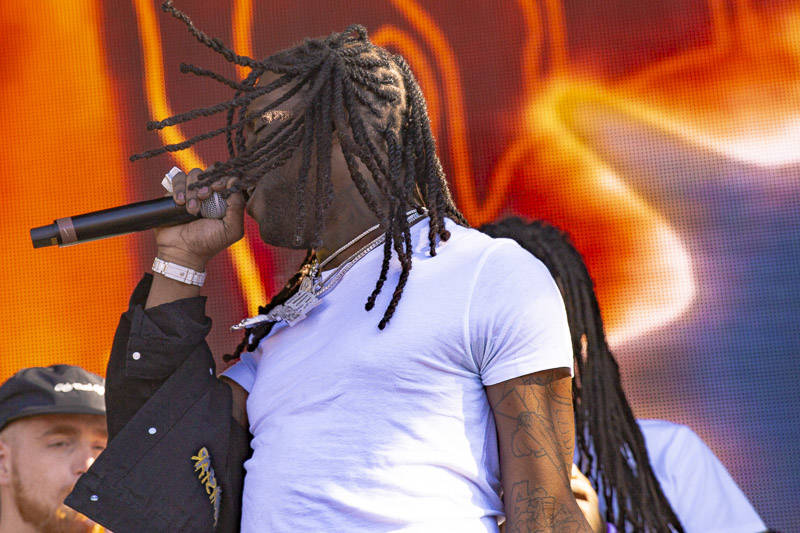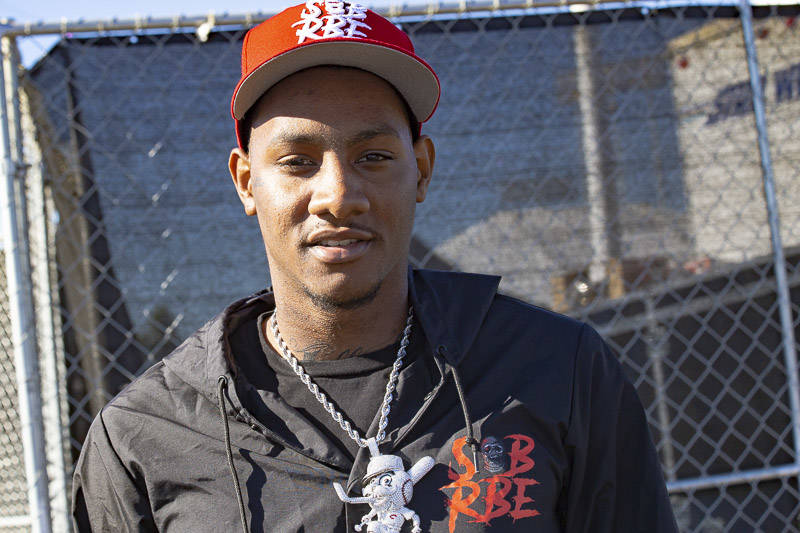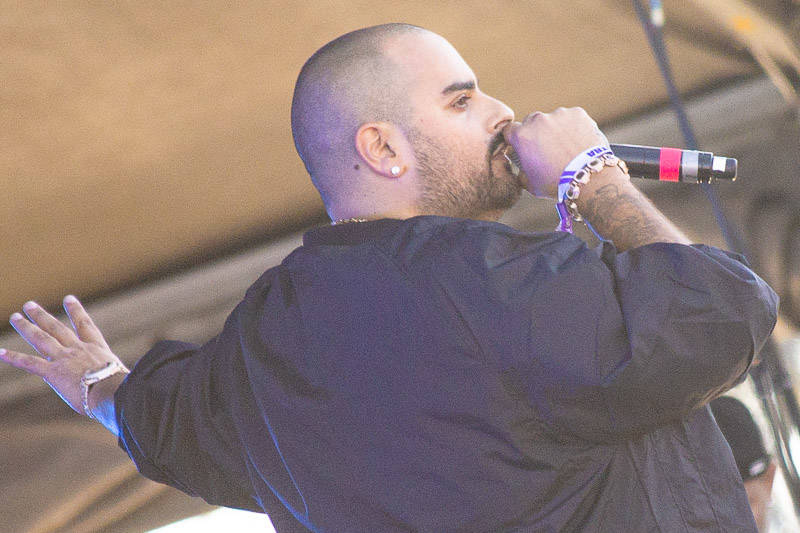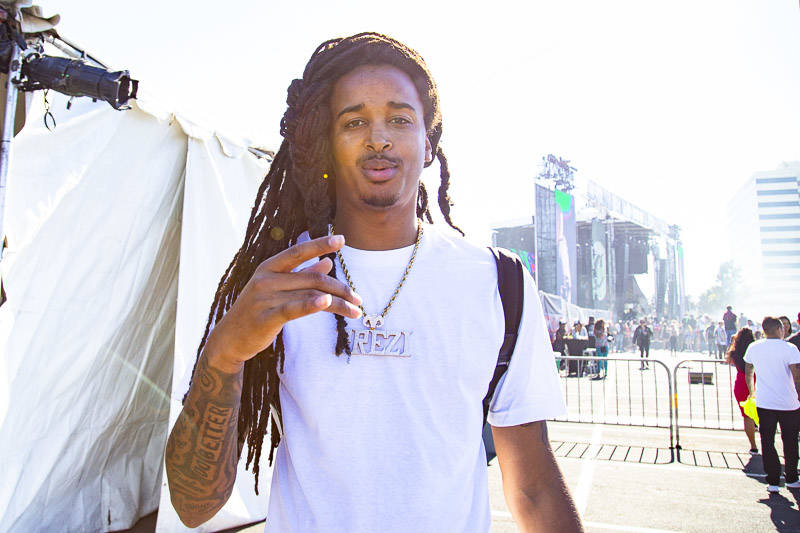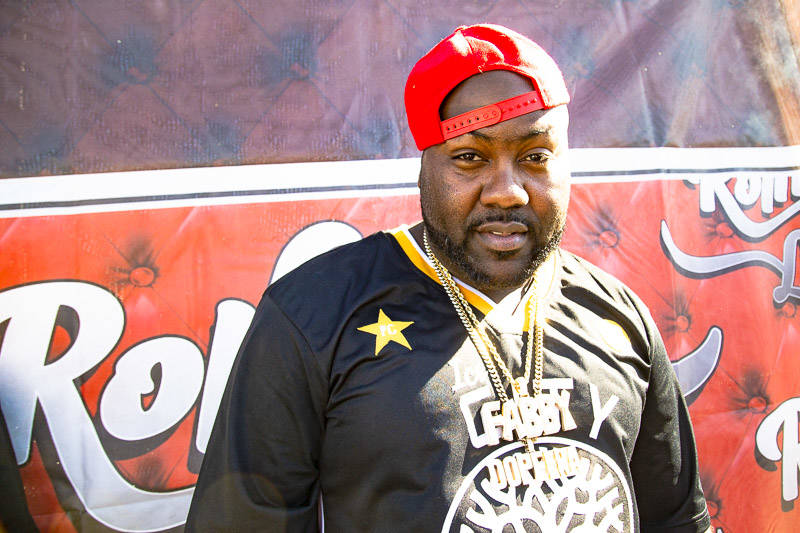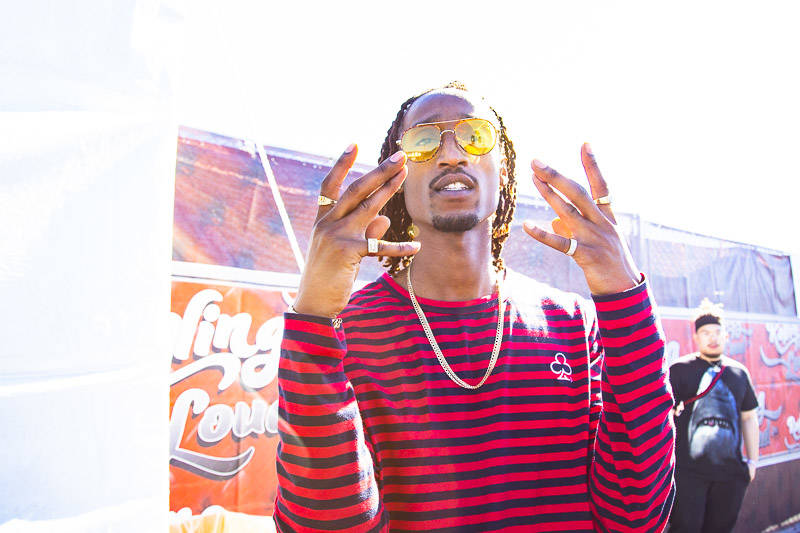On Sept. 15–16 at Oakland’s Coliseum grounds, a poster of P-Lo, the hyphy heartthrob, greeted Rolling Loud’s thousands of attendees as they entered the venue to witness an intergenerational lineup of Bay Area rappers and industry heavyweights like Travis Scott and Pusha T.
“The Bay is very important to the history of hip-hop,” Tariq Cherif, co-founder of Rolling Loud, told KQED Arts. “You know, a lot of the modern independent hip-hop scene was built and modeled after what guys in the Bay were doing.”
Since its debut in 2015, Rolling Loud has become the world’s largest traveling hip-hop festival, with editions in Miami and Los Angeles. But in 2017, its inaugural Bay Area event at Shoreline Amphitheater didn’t go off without a hitch: beloved Berkeley rapper Lil B was physically assaulted, allegedly by another rapper’s entourage, and some Bay Area rap fans and promoters lambasted the event online as a result.
Rolling Loud 2018 in Oakland, however, took a different tone: the two-day festival celebrated and uplifted the Bay Area’s regional sounds, with high-energy performances by over a dozen Northern California artists, including E-40, Kamaiyah, Saweetie, P-Lo, Mozzy and ALLBLACK.
The critical mass of Bay Area and Sacramento artists kept the fest from feeling generic and gave it a distinctively local flavor. Without these acts, Rolling Loud Oakland would have blended in with the festival’s other editions, where Travis Scott, Young Thug and Jaden Smith have already performed. The crowd looked familiar, too: neon fanny packs, NBA jerseys and white-girl cornrows resembled Instagram in real life. And as it often happens at music festivals, many non-black concertgoers seemed to feel disconcertingly at ease saying the n-word as they rapped along with their favorite artists.
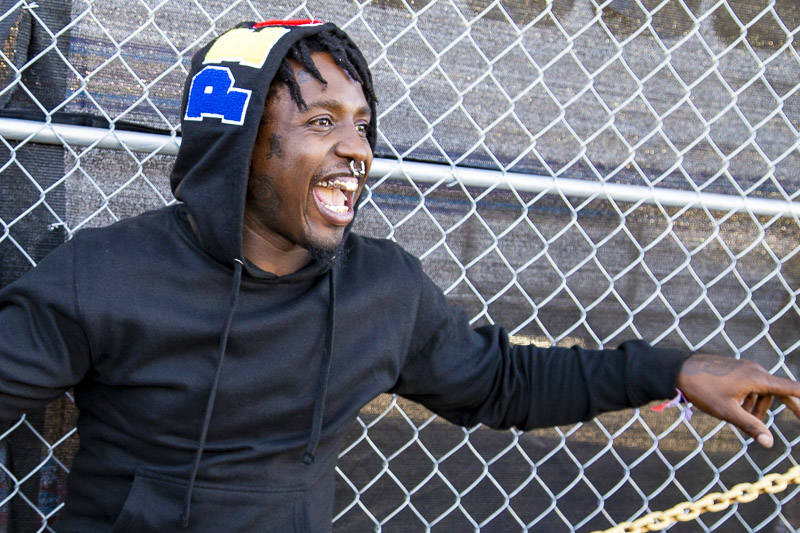
At Rolling Loud’s Saturday kick-off, ALLBLACK didn’t let fans forget they were at a show in East Oakland, his home turf. He’s an emerging regional star on his way towards carrying Oakland’s sound beyond the 510. His set narrated his life experiences as a black man growing up in a neighborhood called the Murder Dubs, with an aggressive flow that blends the Town’s earlier music movements of mobb and hyphy into a forceful signature sound.
